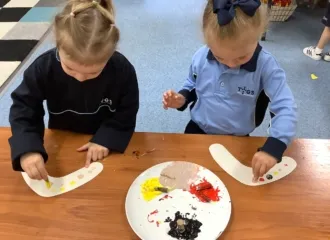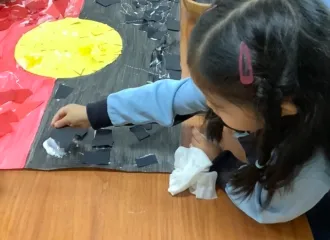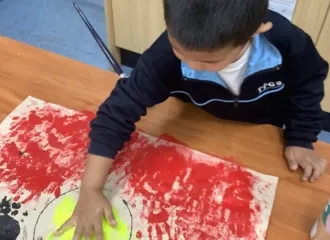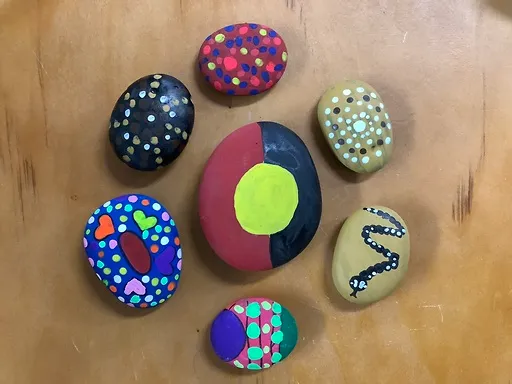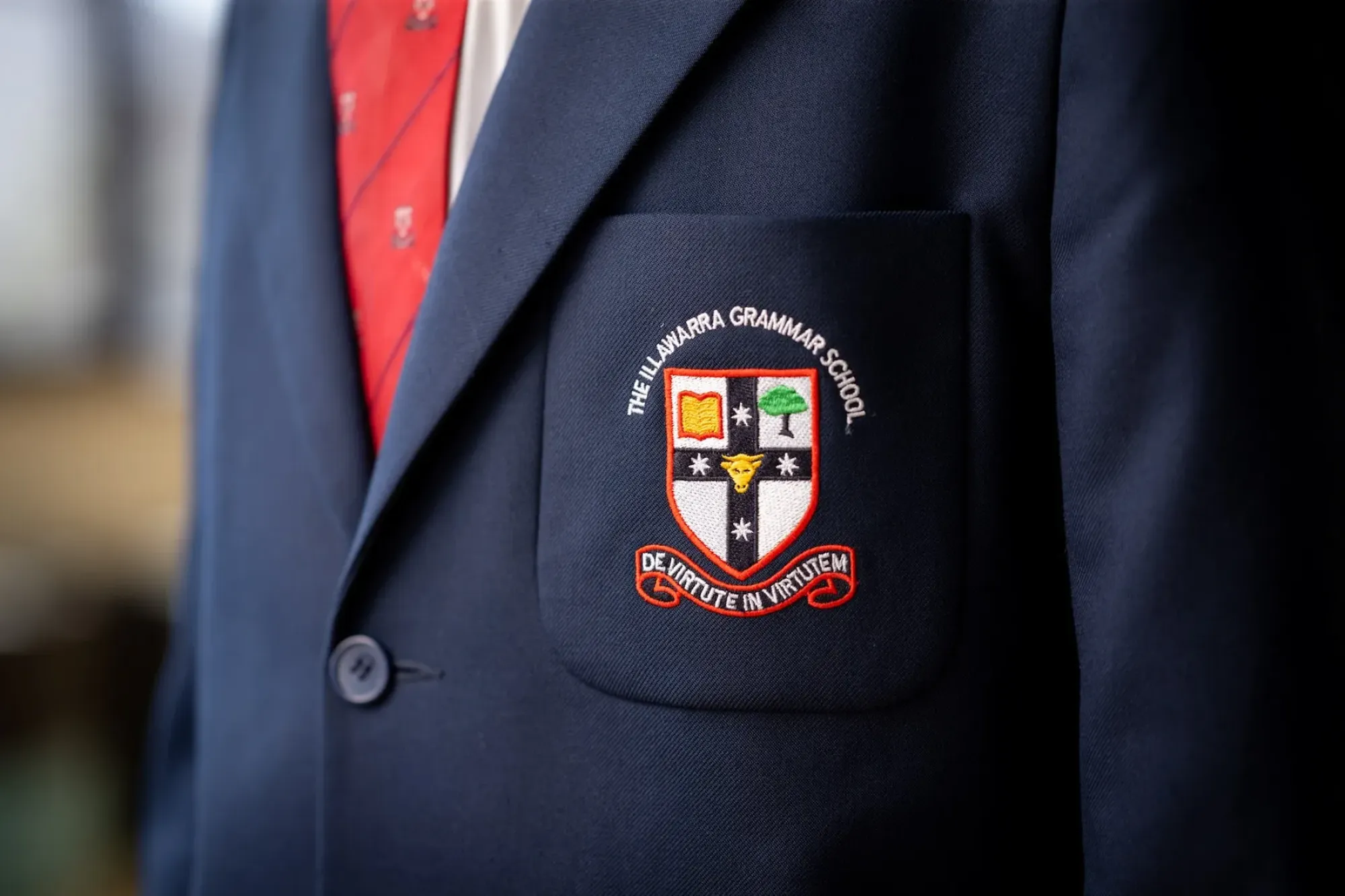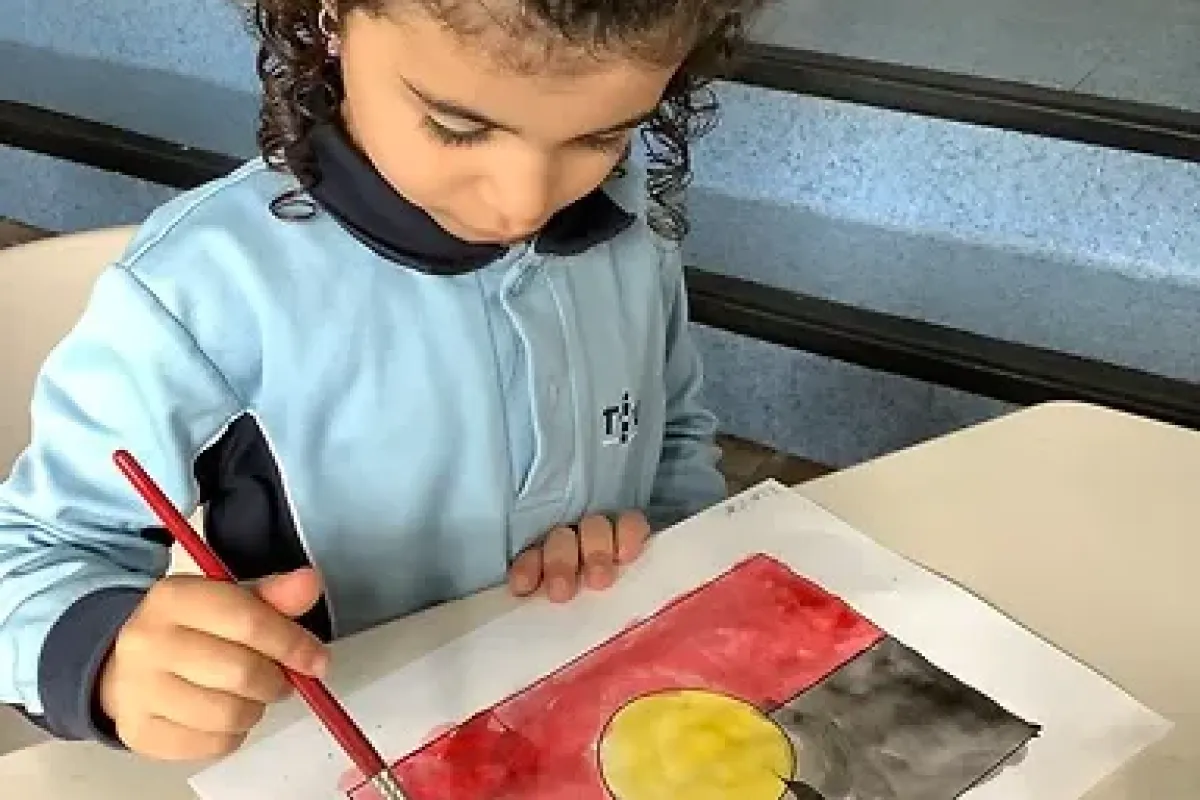
Millions of Footprints
Embedding Aboriginal perspectives into an early childhood curriculum is a central part of our everyday practice. Listening to and engaging with Aboriginal perspectives is critical in shaping how you embed them. At TIGS Prep, we believes in acknowledging the original custodians of this land, the Dharawal people, and their language and all Aboriginal and Torres Strait Islander people in the community.
Let us reflect on the millions of footprints that travelled the Dreaming pathways, and our own loved ones who have gone before us.
Taking place from 27 May – 3 June, National Reconciliation 2020, marks twenty years of shaping Australia’s journey towards a more equitable, just, and reconciled nation. A time to learn about and recognise Australia’s shared histories, cultures and achievements, and strengthening respectful relationships between the wider Australian community and Aboriginal and Torres Strait Islander peoples. The theme for Reconciliation Week 2020, ‘In This Together’, is relevant in this time of global crisis. It reminds us that whatever circumstance we find ourselves in, the interconnections of our society mean that we are all unavoidably and essentially in this together.
TIGS Prep acknowledged the launch of National Reconciliation Week recognising the importance of Indigenous culture across the Centre throughout the week. The educators and children acknowledge the custodians of the lands we live, work, educate and gather on. We acknowledge the people of those lands and pay respect to elders, past, present and those who are emerging.
This week is a special week to actively involve our children in showing our commitment to building relationships and communities that celebrate our first National people. The children learnt about Australia’s Indigenous culture in a positive and respectful manner including learning about the meaning behind the Aboriginal Flag.
The children watched a special Acknowledgement of Country episode of Playschool featuring Luke Carroll, Miranda Tapsell and Hunter Page-Lochard sharing their languages, stories and songs celebrating Australia’s First People.
In Cooinda, the educators read Dreamtime stories and have also created a learning space with musical instruments where children are encouraged to engage in the space and share ‘stories’ through music and dance.
The children enjoyed listening to the Aboriginal Dreamtime story ‘Fish Dreaming’. The book tells the story of a man who knew his wife would come to him through the totem of Fish Dreaming. He sat patiently by the riverbank waiting for his wife. After the story, each child had the opportunity to participate in a memory game. Using the Aboriginal Memory Cards, the children took turns to flip over one card, hoping they matched it to the card in their hand.
In Marana and Elanora, to extend their inquiry into storytelling, the children were introduced to story stones. Each stone has an object painted on it. The idea of this experience was for the children to create a story using the stones and their imagination. The children each took turns in selecting a stone with an object on it and this was added to the story. This experience was thoroughly enjoyed by all children and they loved hearing the story they had created. This demonstrated the children’s ability to reflect and remember language experiences and how they verbalise and re-tell stories.
